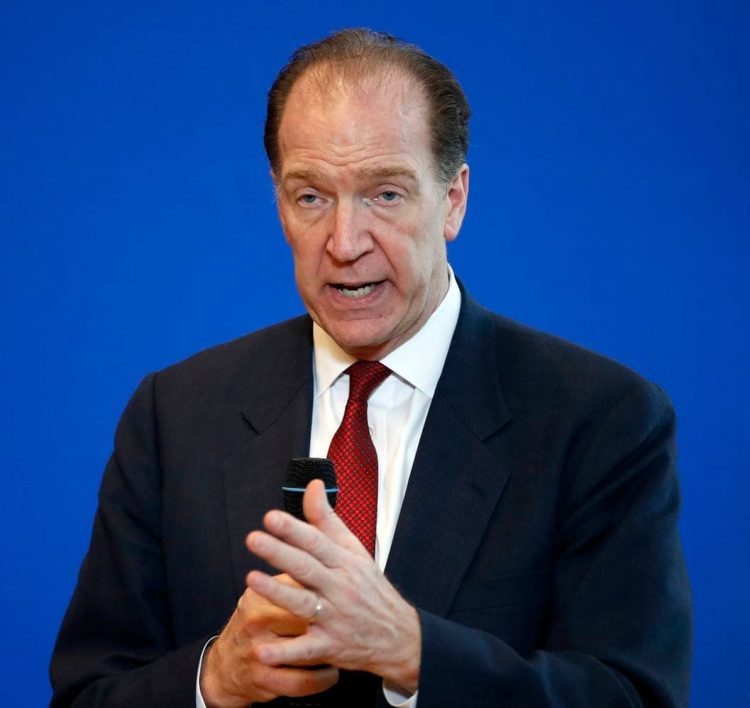The World Bank says food prices rose 20 per cent between January 2020 and January 2021with over 60 per cent of households reported reduction in total income; and 1.6 billion children out of school.
World Bank Group President, David Malpass said the development has led to more than half a year of learning losses.
He spoke at the Nordic and Baltic Ministers and Governors of the World Bank Group meeting.
The pandemic has also highlighted the consequences of several slow-burning crises – rising conflict and violence, displacement, stagnant median incomes, collapsed businesses and lost jobs, the depletion of savings and assets, loss of agency for women, and damage caused by climate change.
In response, the World Bank Group mounted the fastest and largest crisis response in its history. In 2020, the World Bank achieved a record 65 percent growth in commitments. Group-wide commitments topped $100 billion for the first time, reaching $108 billion. We also saw a significant increase in the speed and volume of our disbursements, with over $50 billion dollars in cumulative disbursements between March 2020 and April 2021. We expect this elevated level of delivery to continue in 2021.
“What these disbursements mean is that we’re getting finances to people in need and using all available platforms to reach the poorest. We scaled up our cash transfer programs, which provide rapid and direct relief to the poor, vulnerable, and most marginalized groups, including women, the disabled, unemployed youth, and the elderly. From March 2020 until April 2021, we have committed over $6.3 billion in direct financing of cash transfers programs, across 22 countries benefitting over 130 million poor people,” he said.
“We want to build on this knowledge and further invest in enhancements to social registries to improve the coverage of the poor and enhance digital payments to facilitate rapid, safe, and secure delivery of income support”.
He said that since the beginning of the pandemic, over 100 million people were pushed into extreme poverty, with an additional 50 million expected by the end of 2021.
Around 250 million jobs have been lost, and an additional 130 million people face chronic hunger and malnutrition because of the economic impacts of COVID-19, effectively doubling the number to over 270 million.
Beyond the immediate impact, the crisis has increased inequality in much of the world. COVID-19 is widening gender gaps, reversing decades of gains for women and girls in areas like education, economic empowerment, and female agency.



